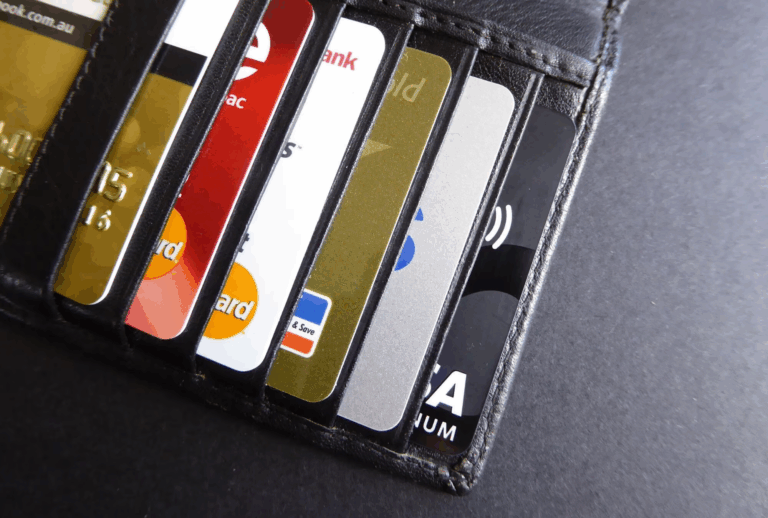
Tips for Selecting the Right Credit Card for Your Personal Requirements
With millions of credit cards in the marketplace today, picking the right one certainly feels overwhelming. Each card offers a different kind of thing, from cashback to travel rewards to balance transfer offers to low-interest-rate offers. However, how to tell one that actually fits your need?

Develop a better sense of spending
Understanding how you usually spend your money is the first step towards finding the right credit card. Are you swiping your card for all the normal stuff, such as groceries, petrol, and eating out? Or perhaps, you fly a lot and would like to earn points on your airfare and hotels?
Your choice of card should be based on your spending habits:
Regular purchases: You will want to get a cashback card that will give you rewards on your main categories.
Travel: If you travel, a travel rewards card can be good too, because it provides points or miles that you can use for flights, hotels, or other amenities.
For large purchases: Use a card with a low APR or a 0% introductory APR to save on interest
Know where you spend the most so you can choose a card that offers the most rewarding rewards or best features that align with how you normally use your card.
Know Your Credit Score
How much weight you will land on which cards you will qualify for depends on the score. Many premium cards — cards that offer high rewards or rich perks — require at least good credit (670 and up, generally).
Research your credit score prior to applying for a card. This is offered by most banks and credit bureaus for free. If your score falls flat of decent, apply for a card to help you establish or repair your credit, like a secured credit card or one with basic features and no annual fee.
Determine The Type Of Card → Decide What Kind Of Card You Want
There are a few major types of credit cards, and the best is based on what you’re looking to do financially:
Rewards cards: These cards allow you to earn cashback or accumulate points or miles based on your purchases. Best for those who pay off their balance in full each month.
Balance transfer or low interest cards: Ideal for someone with existing debt looking to cut down on interest payments.
Credit-building cards — For no credit or poor credit. Tend to be secured (you have to make a deposit)
Business Credit Cards: Suited for small business owners; having expense tracking and unique rewards
This knowledge will help you steer clear of unnecessary fees and get the most out of your card.
Compare Transaction Fees And Interest Rates
Always read the fine print. Others are rich in rewards but expensive in fees and interest rates. Key terms to compare include:
Yearly fee: as an example, some cards include fees starting from $95 up to $500+ for each year. Make sure the cost is worth the rewards and perks
If you plan to carry a balance, then a lower APR is extremely important.
Foreign Transaction Fees: Get serious when traveling. Caveat: This is usually waived for most travel cards.
These are:Penalty fees — fees from late payment or issuance of returned payment might be piled up.
It becomes necessary to select one with no or very low fees if you are new to credit usage or plan on making occasional use of it.
Spot Potential Bonuses and Introductory Offers
There are a lot of credit cards that give you a welcome bonus if you only spend a set number over the 1st few months. So, spend $1,000 in the first 90 days and get back $200 cashback, etc.
In the same way, balance transfer cards can provide you 0% APR for 12 to 21 months, so you could pay off previous debt without accumulating extra interest.
As long as the spend requirement is within your budget, you will be fine. Do not buy overpriced to receive a bonus.
Evaluate Long-Term Value
Yes, I know, their immediate benefits are attractive. Consider how the card helps you over time.
Ask yourself:
Will I actually get use out of the rewards?
Am I getting enough value out of it to justify the annual fee?
Does the card assist me with building my credit or with gaining financial targets?
A no-annual-fee card with good rewards is sometimes a lot more valuable than a premium card with fancy benefits that are only used on special occasions.
User Reviews and Comparison
Read user reviews and comparison articles between the two programs online before you apply. Not about benefit schedules but about customer service, function and reward redemption — the real stuff.
There are also online tools you can use that have a side-by-side comparison of multiple credit cards based on your needs (credit score, spend habits, preferred rewards, etc).
Final Thoughts
Selecting the proper credit card isn’t just about selection one with the largest bonus or the fanciest rewards. Money management and aspiration alignment with a card that works for you. Whether you want to establish credit, earn rewards, receive cash back, save on interest, or separate business expenses, there is a card made for you.
Be patient, shop the selection, and remember: the best credit card is the one that helps you – not harms you.
Tell me if you would like to write this in a version of a newsletter, social media post, and/or landing page too.
Our Post


From Paycheck to Prosperity: The Ultimate Blueprint for Sustainable Wealth Building
